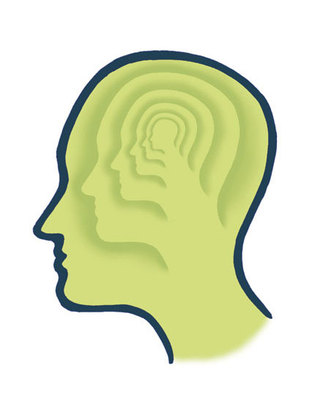 loading
loading
FindingsFooled by our own brains?You make fewer choices than you think you do.  Gregory NemecView full imageBefore you left home this morning, you likely made numerous choices: whether to ignore the alarm clock, what to have for breakfast, which clothes to wear. But did you really make those decisions consciously—or did your brain give you that impression? In a June paper in Psychological Science, Adam Bear ’19PhD and psychology professor Paul Bloom ask whether sometimes, when we experience choosing, our minds are rewriting history. “Are we fooled by our brains,” Bear asks, “into thinking that what we perceive as choices are the result of conscious actions—and not of subconscious brain activity?” Bear and Bloom conducted an experiment in which participants sitting in front of computer screens were asked to predict which of five white circles would turn red as the circles flashed rapidly. After a circle changed, participants recorded whether they had chosen correctly or incorrectly. The sequencing was random, so probability dictates that 20 percent of predictions would be accurate. But when participants had only a fraction of a second to respond, they claimed to have chosen the red circle significantly more often than that. (When they had more time, the reported proportion of accurate predictions was near the expected 20 percent.) The results suggest that events were rearranged in subjects’ minds: they subconsciously perceived the red before they predicted its appearance, but consciously experienced the events in the opposite order. “Your brain processes different kinds of information at different rates,” Bear explains in an e-mail. “It might take longer for a visual experience to reach consciousness than it takes you to become aware of a choice that’s made on the basis of that information.”
The comment period has expired.
|
|